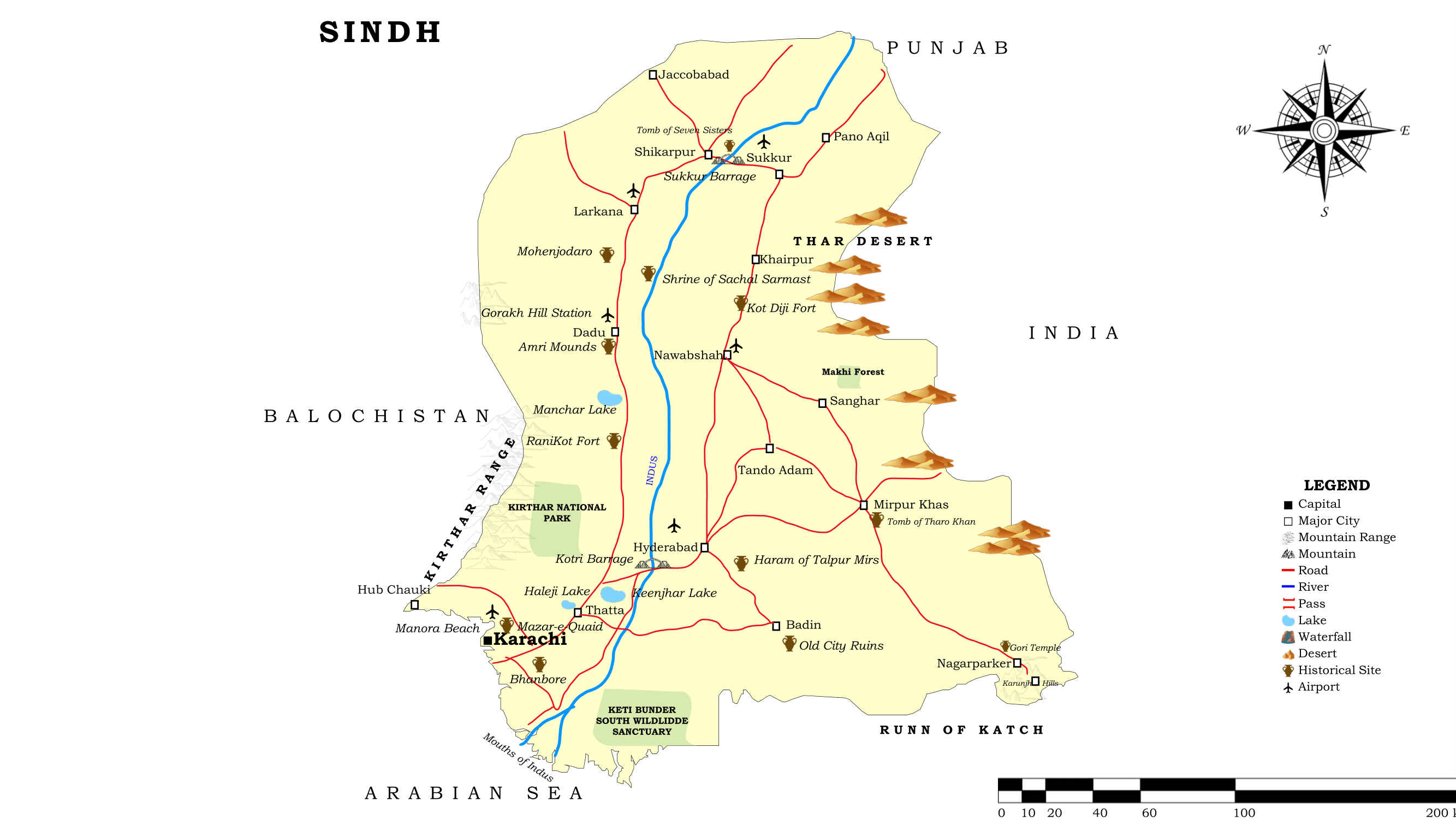Sindh
The Gateway to Islam
Embark on a captivating visual journey through the vibrant landscapes, rich cultural heritage, and enchanting traditions of Sindh, Pakistan. Journey Through Sindh A Photographic Odyssey offers a compelling exploration of this ancient land, capturing the essence of its people, places, and timeless beauty through a lens of breath-taking imagery


Sathiyan Jo Than
The tomb of the 7 sisters holds great historical and cultural significance in Sindh.

Sanchal Sarmet
A spiritual and architectural marvel located in the Sindh region.

Ranikot Fort
The world's largest fort, offering breathtaking views and a rich history.

Manora Beach
A peaceful getaway by the Arabian Sea, known for its serene atmosphere.

Shrine of Lal Shehbaz Qalandar
A sacred shrine visited by thousands for spiritual healing and peace.

Keenjhar Lake, Thatta
A popular tourist spot for boating and picnics, with rich wildlife.

Desert Hamlets, Tharparkar
Experience the unique desert culture of the Tharparkar region.

Manchar Lake
One of the largest freshwater lakes in South Asia, home to vibrant ecosystems.
The Gateway of Islam
Sindh, with its storied history and cultural significance, has long been regarded as a gateway to Islam in the Indian subcontinent. From the arrival of the Arab traders and the mission of Muhammad bin Qasim in the early 8th century to the spread of Sufi saints’ teachings in later centuries, Sindh played a pivotal role in the dissemination and establishment of Islam in the region.



